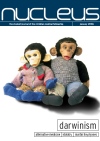Today’s society seems petrified of these words: ‘you’re wrong’. Clinical tutors are taught not to say that students are ‘wrong’, in the belief that this upsets them. In general, we just don’t like hearing it.
This sometimes extends to speaking about the gospel as well. We like speaking about how it is free to everyone who believes, and how magnificent the gift of eternal life is. This is all great, of course, but somehow we forget to mention the issues of sin and judgment, perhaps because we don’t like conflict. A desire to steer clear of those words and only focus on the positive has led some eminent preachers to stop believing that Jesus died for our sins in our place; instead, they claim only that he identifies with our suffering, and this is apparently how we are saved.
This is false teaching. The Bible spends much time on the subject. Paul warned the Ephesians night and day for three years about the problem of wolves stealing the flock (Acts 20:31); he cautioned Timothy to refute error and remove people who were speaking untruths (1 Tim 1:3-11). The issue is that people are easily led astray by these charming individuals who distort the gospel, which is what makes it so serious. So how can we protect ourselves?
In order to refute error, we must know the truth better through Scripture (2 Tim 3:16), and be confident about saying something is wrong when we know it is! Martyn Lloyd-Jones was a man who knew all about this - he was one of our medical forebears and you can read about him on pp8-10. He said that who we are as Christians must be defined by what we do believe, and what we don’t believe. It is good to believe in Jesus – but it means nothing unless you really believe in him exclusively.
Controversy doesn’t end with purely doctrinal issues, and in this edition we look at two particularly tricky topics – Darwinism (pp 23-30) and alternative medicine (pp 14-22). Both are vital issues for us to understand and respond to as they permeate the worlds of our colleagues and patients respectively.
What do you think about work? Medicine will form a substantial part of our lives. We know it’s a noble enterprise, and it provides many opportunities for evangelism. However, work can also be futile and idolatrous. Tim Hinks tackles the tricky subject of idolising medicine (pp31-37) and shows us many ways that God’s commands can be sacrificed on the altar of our careers – some more subtle than you might think.
































